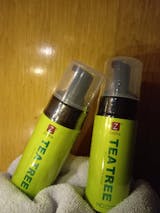The Role of Raspberry Seed Oil in Skin Health: Unlocking Natural Beauty Benefits
More people are turning to natural skincare solutions. Plant-based oils are now a staple in many routines. One oil gaining attention is raspberry seed oil. It offers unique benefits for skin health naturally. This oil is becoming popular in skincare products and DIY remedies. Knowing what it contains and how it works can help you make better choices. Let’s explore how raspberry seed oil boosts skin beauty in simple, effective ways.
The Composition of Raspberry Seed Oil and Its Skin Benefits
Nutritional Profile of Raspberry Seed Oil
Raspberry seed oil is packed with healthy fats. It contains omega-3, omega-6, and omega-9 fatty acids. These are essential for healthy skin. It is also rich in antioxidants like vitamin E, polyphenols, and ellagic acid. These protect skin cells from damage and aging. Phytosterols in the oil help repair the skin barrier and keep moisture in.
How These Components Benefit Skin Health
Antioxidants fight the damage caused by free radicals, which speed up aging. The fatty acids hydrate the skin, making it soft and elastic. They also help strengthen the skin’s natural barrier. Phytosterols reduce inflammation and support skin renewal. This makes raspberry seed oil great for soothing irritated or sensitive skin.
Scientific Evidence Supporting Raspberry Seed Oil for Skin Care
Research Studies and Clinical Trials
Recent studies show raspberry seed oil acts as a strong antioxidant. It also reduces inflammation and helps protect skin from the harmful effects of the sun. Laboratory tests suggest it has natural UV-blocking powers, similar to some sunscreens. This gives it promise as a natural sun protector.
Expert Opinions on Efficacy
Dermatologists agree raspberry seed oil shows real skin benefits. Many skincare experts recommend it for boosting skin’s health. Some clinical cases show how it improves skin texture, reduces signs of aging, and calms irritated skin.
Practical Applications of Raspberry Seed Oil in Skincare
Forms and Usage
You can find raspberry seed oil in many forms—pure oil, serums, creams, or even DIY recipes. It’s easy to add to your routine. Simply warm a few drops and apply gently to your face or body. For best results, use consistently.
Common Skin Concerns Addressed
-
Anti-aging: Its antioxidants help turn back the clock on wrinkles and fine lines.
-
Dry or sensitive skin: The oil deeply hydrates and soothes irritation.
-
Sun protection: It offers a natural shield against UV rays, aiding in sun damage prevention.
Tips for Incorporating Raspberry Seed Oil
Always do a patch test first to spot allergic reactions. Mix it with other skincare ingredients for added benefits. Use a small amount daily—about 2-3 drops—massaged into clean, dry skin.
Safety, Storage, and Potential Side Effects
Safety Considerations
Most people can use raspberry seed oil safely. But those with allergies should test first. If you notice redness or irritation, stop use and consult a dermatologist.
Storage Tips
Keep the oil in a dark glass bottle. Store it in a cool, dark place to keep it fresh and potent. Exposure to heat or light can degrade its quality.
Possible Side Effects
Rarely, some might have allergic reactions like itching or redness. Monitor your skin during initial uses. If reactions occur, wash the area and seek medical advice.
Conclusion
Raspberry seed oil is rich in nutrients that support skin health naturally. Its antioxidants, fatty acids, and phytosterols make it a versatile ingredient. Whether you're fighting aging, soothing sensitive skin, or seeking extra sun protection, this oil can be a great addition. Incorporate it into your skincare routine with simple steps. Using botanical oils like raspberry seed oil helps you care for your skin in a gentle, natural way. Unlock your skin’s potential with this all-natural beauty secret.










